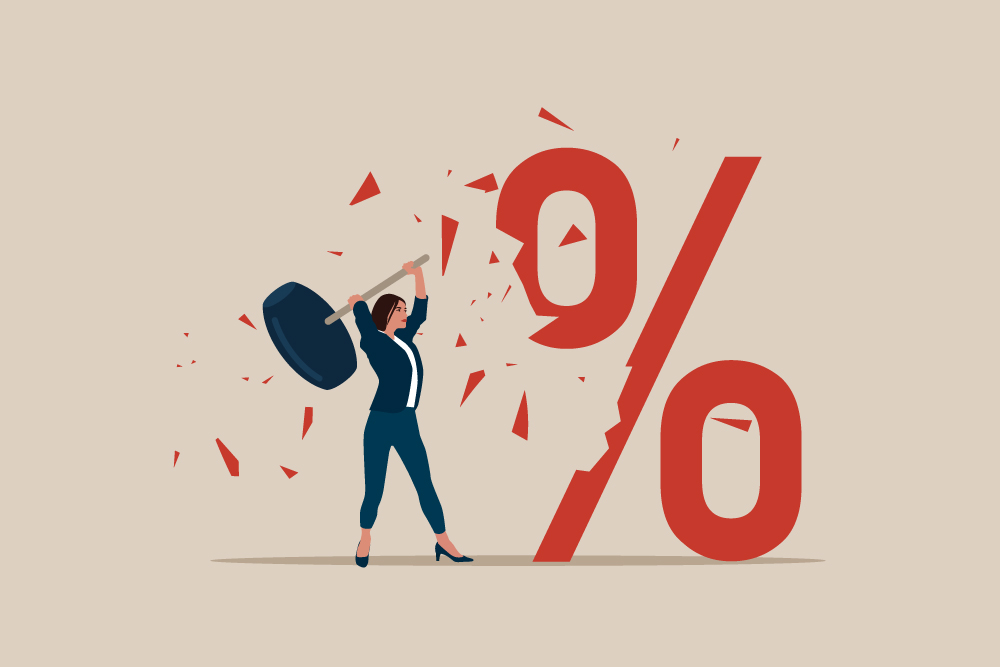Whoa! Actor Joey Lawrence’s lovable but dense TV character, Joey Russo, uttered that catchphrase on the 1990s sitcom “Blossom,” and the phrase has been synonymous with Lawrence ever since.
Lawrence might have used that phrase a time or two after realizing that the former teen heartthrob and his wife, Chandie Yawn-Nelson, had to file for Chapter 7 bankruptcy in July 2017 to erase $355,517 in debt. More than one-third of that debt — $132,000 — was attributed to credit card bills.
News of the bankruptcy filing recently surfaced. Although it dates back to last summer, the court case offers an opportunity for a timeless lesson about credit card debt.
Here are six lessons you can learn from Joey Lawrence’s bankruptcy:
1. Stay away from sky-high debt
First off, it’s easier said than done, but no one should ever run up that much credit card debt unless he or she is well-off. And at this stage in their lives, Lawrence and Yawn-Nelson are anything but well-off.
Court documents from 2017 placed Lawrence’s monthly income at $6,966, while Yawn-Nelson was unemployed. On a yearly basis, their income added up to $83,592 — nearly $50,000 less than their total credit card debt.
That equation just doesn’t work out. No one’s credit card debt should be above their annual income. Otherwise, he or she probably will never climb out of that debt hole.
2. Limit your lifestyle
Secondly, the couple’s monthly expenses totaled $25,505, including $13,500 per month in rent. They clearly were living like Hollywood hotshots — and living beyond their means.
If you’re drowning in credit card debt, along with other types of debt, you shouldn’t be throwing away that much money on monthly expenses, including $13,500 a month for rent.
3. Stick to a budget
Way before they were forced to head to bankruptcy court, my advice to Lawrence and Yawn-Nelson would have been to come up with a household budget and slash expenses, with the main cost cutter being more affordable living arrangements.
Relying on the standard rule that you should allocate 30% of your monthly income for housing, the couple should have been paying about $2,000 a month in rent — not $13,500.
As part of their budget plan, the couple could have reached out to their credit card companies and inquired about gaining some relief from their debt, such as coming up with new payment agreements.
I’m guessing that Lawrence and Yawn-Nelson weren’t adhering to a household budget, but I hope they are now so that they don’t end up in bankruptcy court again.
4. Seek sound advice
What if clipping their expenses (and perhaps even clipping coupons) wasn’t getting the job done? Then Lawrence and Yawn-Nelson should have contacted a nonprofit credit counseling agency. You can find a list of such agencies on the website of the National Foundation for Credit Counseling.
What does a nonprofit credit counselor do? As the foundation points out, a counselor can:
- Advise you on managing your money.
- Offer ways to resolve your financial problems, including your credit card debt.
- Develop a plan to help prevent future financial difficulties.
5. Your last resort: Bankruptcy
Ultimately, credit counseling is supposed to keep you from resorting to bankruptcy. But in certain instances, bankruptcy might be the best (or only) option.
According to GreenPath Inc., a nonprofit credit counseling service, the two most common types of bankruptcy for people like Lawrence and Yawn-Nelson are Chapter 7 and Chapter 13:
- Through Chapter 7, which is the kind that the Lawrences chose, most and perhaps all of your debt is eliminated, giving you “the opportunity to wipe the slate clean,” GreenPath says. The court refers to this as “discharging” your debt.
- In a Chapter 13 case, someone repays a portion of his or her debt over a three- to five-year period, GreenPath says. Chapter 13 protects certain assets, such as your home and your car.
“Bankruptcy can give you a fresh financial start on life,” GreenPath says, “and can seem very attractive to people who cannot afford to pay their bills as they become due.”
But — and this is a big but — a bankruptcy filing comes with attorney’s fees and court costs, and the filing will stay on your credit report for a few years, according to GreenPath. As such, you’ll likely encounter trouble obtaining credit after the bankruptcy.
Before pursuing bankruptcy, carefully weigh your options in consultation with a debt counselor and an attorney.
6. Ask for help early on
For me, the main message from the bankruptcy of Lawrence and Yawn-Nelson is that you should ask for help with your debt before things get as bad as they did for the couple.
Very rarely does someone amass $355,517 in debt, including $132,000 in credit card bills, in one day; rather, the debt normally builds up over time. Well before the bankruptcy, the couple had to know that they’d need to make a drastic move to clean up their finances.
By taking action early, perhaps you can steer clear of a serious “Whoa!” moment regarding your finances.



